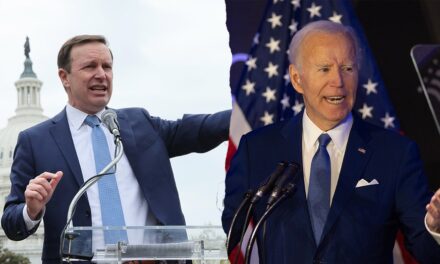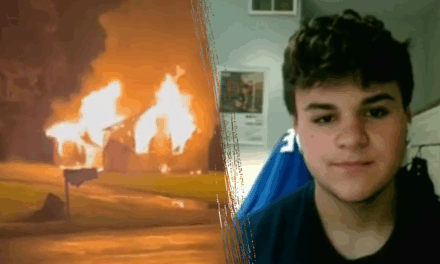In a recent interview, the showrunner of the critically acclaimed show ‘Andor,’ which is set in the ‘Star Wars’ universe, addressed ongoing speculation regarding the series’ political undertones. Despite various interpretations suggesting the show leans towards a left-wing political narrative, the creator firmly contends that the story is not meant to convey a specific political message.
The ‘Star Wars’ franchise has long been a cultural phenomenon, appealing to audiences worldwide since its inception in 1977. With its expansive universe, a multitude of characters, and complex narratives, it has often inspired dialogue surrounding issues of governance, freedom, and rebellion. ‘Andor’, which explores the backstory of Rebel Alliance hero Cassian Andor, is one of the latest additions to this storied saga, offering a more grounded look at the consequences of political strife.
However, as audiences dig deeper into the series, themes of resistance against oppression have incited various interpretations, leading some critics to label the show as a conduit for left-wing ideologies. In the interview, the showrunner acknowledged the series indeed has themes of systemic oppression and rebellion, yet he maintained that such themes are not exclusive to any one political ideology.
“We’re not telling a story that is ‘left-wing’ or ‘right-wing,’” he stated. “What we’re trying to explore is the human experience in the face of tyranny, and that’s not confined to any specific agenda.” This assertion reflects a growing trend among creators who aim to make art that resonates with universal experiences rather than aligning with partisan viewpoints.
‘Andor’ digs deep into the nuances of the characters’ motivations and the moral complexities that define their decisions within a tyrannical regime. Through the lens of an individual’s journey, the series grapples with the bedrock questions of autonomy, sacrifice, and the struggle for freedom. The showrunner elaborated on how the narrative draws heavily from real historical events, suggesting that stories of rebellion against oppressive systems tend to resonate universally, regardless of contemporary political climates.
Critics and fans alike have posited that the real-world implications imparted through ‘Andor’ relate closely to current socio-political rhetoric, especially in the context of notable movements advocating for social justice across the globe. The notion that political resistance is inherently left-wing, some argue, undermines the historical context in which rebellions have taken place, suggesting that regimes that stifle freedom effectively provoke dissent regardless of political leaning.
Despite the critique, the intriguing aspect of ‘Andor’ lies in its character development and narrative arcs, which feature a richly diverse cast representing various facets of society. As viewers follow Cassian’s transformation from a self-serving thief into a committed rebel leader, the series invites them to ponder the fundamental questions surrounding loyalty, love, and the cost of revolution. The showrunner noted, “Each character embodies different aspects of the fight against oppression, which incorporates a multitude of beliefs and backgrounds.”
Additionally, the expansive landscape of the ‘Star Wars’ universe has provided fertile ground for deeper explorations beyond simple good versus evil narratives. With ‘Andor,’ the creators are striving to push past established tropes, portraying a universe shaped by complex motivations and moral ambiguity rather than black-and-white interpretations. This, according to the showrunner, has allowed ‘Andor’ to resonate with a broader audience concerned with real-world implications.
The fascination with ‘Andor’ reflects a larger trend among contemporary audiences seeking more substantial narratives that parallel their own experiences of understanding power dynamics. The inherent relationship between storytelling and political discourse challenges audiences not just to consume entertainment but to engage critically with the material. The showrunner explained that he welcomes discourse around the show’s themes as it indicates that audiences are reflecting on the political dynamics at play both within the series and in their own societies.
Moreover, with streaming platforms offering more room for creative exploration than traditional television networks, ‘Andor’ emerged as a project that was able to blend character-driven narratives with intricate political themes. The showrunner highlighted the freedom provided by the platform, which allowed for deeper storytelling and exploration of themes that might have been glossed over in other formats. This freedom has enabled the creators not merely to present a ‘Star Wars’ adventure but to delve into the cultural and historical ramifications of resistance.
As audiences continue to consume the series, the narrative dissects the very fabric of rebellion, exploring not only the triumphs but also the toll it takes on individuals and communities alike. In a time characterized by rapid global change, struggles for justice, and rising authoritarianism in various parts of the world, ‘Andor’ taps into a collective consciousness that seeks stories reflecting their realities.
And as discussions surrounding the political implications of ‘Andor’ continue, its creator remains steadfast in the belief that art is a reflection of the human condition, transcending narrow political brackets. The showrunner emphasized that while people are free to draw conclusions, the intention behind ‘Andor’ is to initiate conversations rather than dictate a specific viewpoint.
This dialogue surrounding art and politics is not new, with countless creators throughout history attempting to weave their beliefs and reflections on society into their work. ‘Andor’ finds itself in this rich tradition, with the potential to spark dialogue long after the credits roll. Its nuanced approach to character and story development stands as a testament to storytelling’s power in reflecting and shaping discourse within society.
Ultimately, whether or not ‘Andor’ aligns with specific political ideologies may be less important than its capacity to encourage viewers to reflect upon their own beliefs and experiences. Within the tapestry of the ‘Star Wars’ franchise, ‘Andor’ intertwines personal stories of struggle and resilience, urging audiences to consider the broader implications of their own societal contexts.
As the series continues to unfold, the anticipation for future episodes grows, drawing audiences not just for the spectacle but for the rich layered storytelling that challenges the boundaries within genre. In the world of ‘Star Wars’, where hope, sacrifice, and rebellion are eternal themes, ‘Andor’ emerges as a contemporary companion that aligns itself with the most fundamental questions of humanity.
In a landscape continually shaped by the complexities of governance and society, the discourse surrounding ‘Andor’ encapsulates an opportunity for deeper reflection on our world today. And while the creator may reject expressions of ‘left-wing’ rhetoric, the marvel of ‘Andor’ truly lies in its ability to reflect the multifaceted nature of struggle across time and ideology.
































